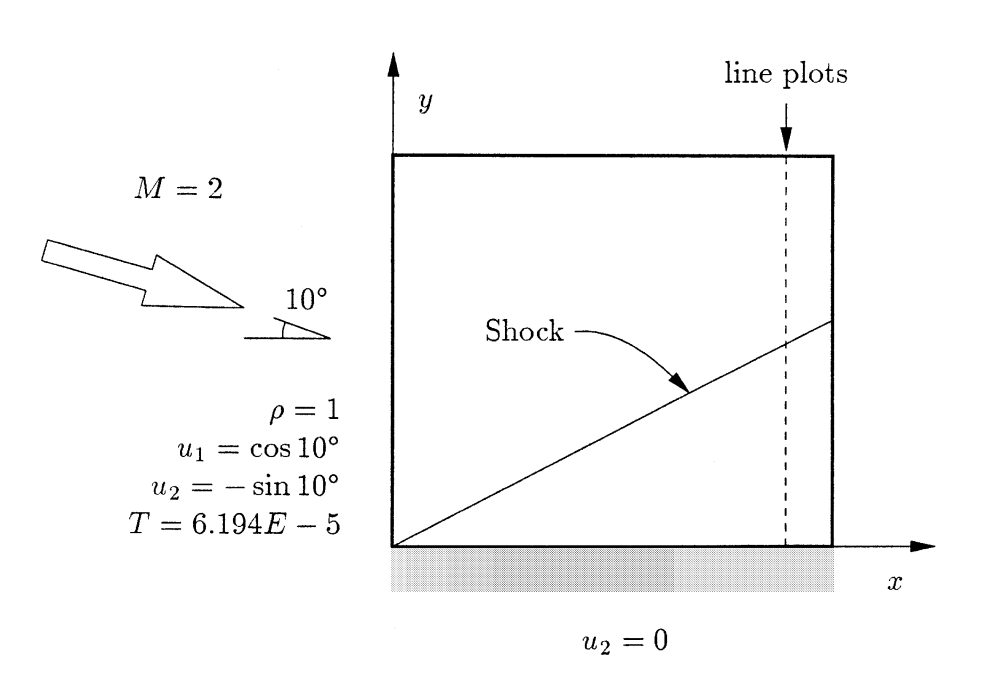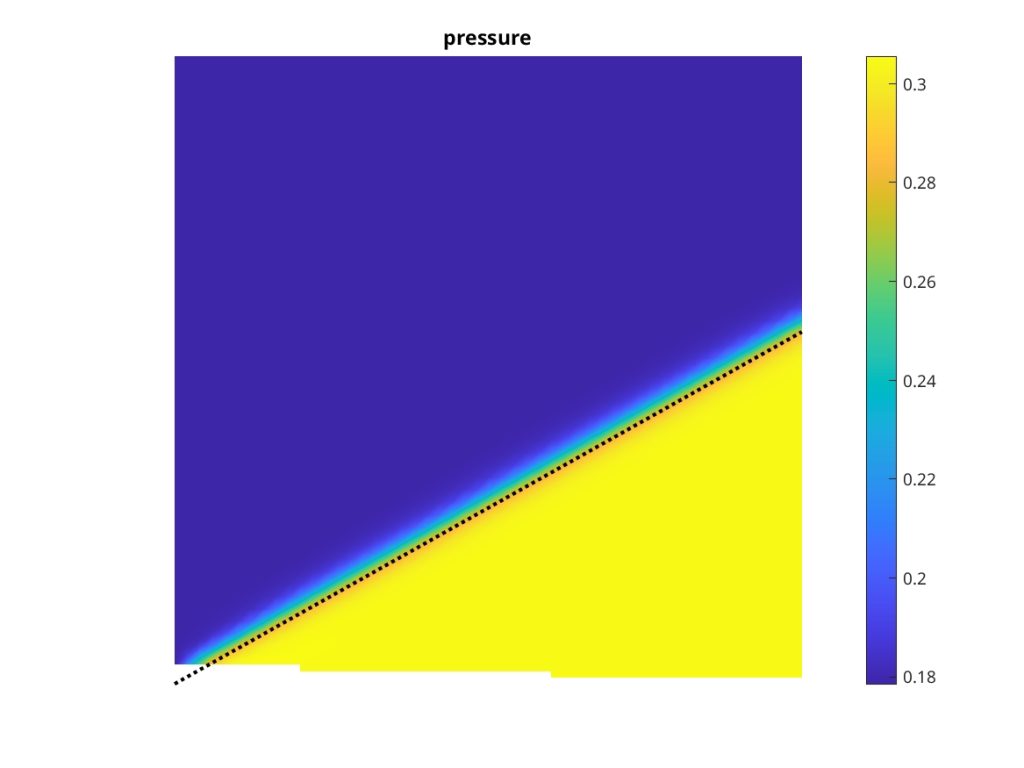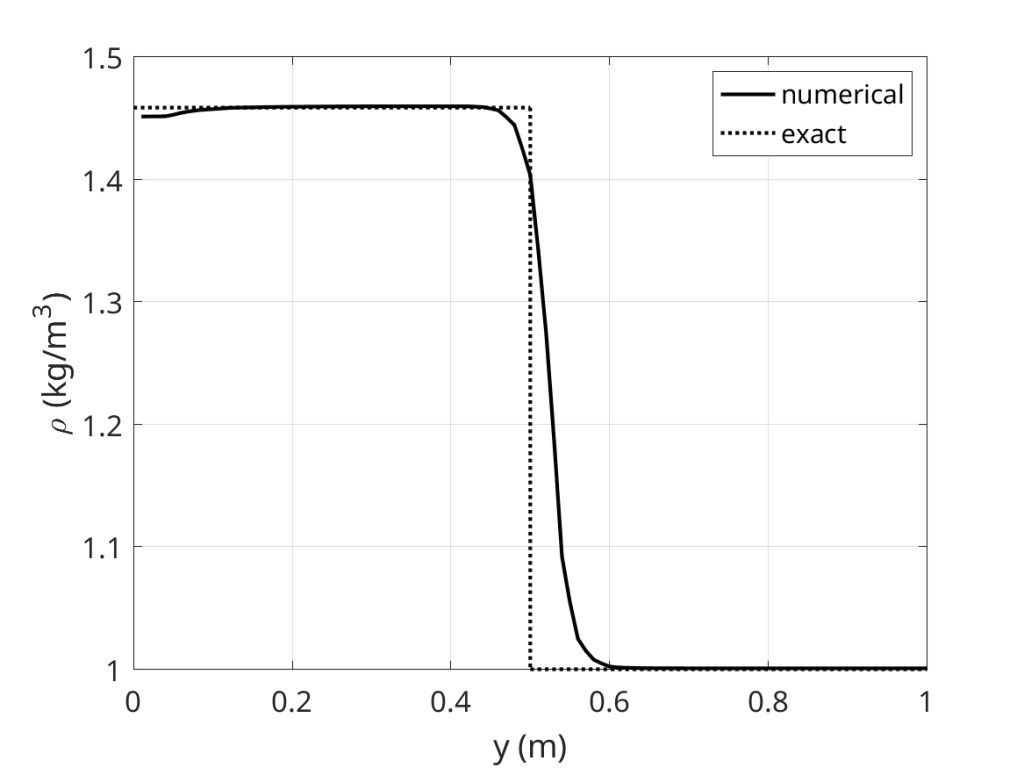Oblique shock
This two-dimensional steady problem consists of a Mach two flow over a wedge at an angle of 10o, resulting in the occurrence of an oblique shock with an angle of 29.3o emanating from the leading edge of the wedge. It is a classical benchmark, first introduced by Shakib et al. (1991) CMAME.

Inlet boundary conditions are prescribed at the left and top boundaries, while free outflow is assigned at the right one. Slip condition (u2 = 0) is imposed on the wedge. Air is taken as perfect gas.
The inlet conditions of M = 2, rho = 1, u1 = cos(10o), u2 = -sin(10o), T = 6.194e-5, p = 0.17857, produce as exact solution at the outlet, M = 1.6052, rho = 1.45843, u1 = 0.88731, u2 = 0, p = 0.30475,
The domain is [0, 1]x[0, 1], and is discretized into regular quadrangular elements of size 0.02 m. The time step is 5e-3 s and the steady state is reached at 4 s.
Details of the problem set up can be found in files setup.txt, fluid_ic_bc.hpp, props.txt and mesh.geo.
Results
The steady state attained by pressure over the domain is shown below. The dotted line represents the 29.3o angle.

The profile of density at x = 0.9 is depicted below with the comparison with the exact solution.

References
Shakib et al. (1991) “A new finite element formulation for computational fluid dynamics: X. The compressible Euler and Navier-Stokes equations” CMAME
Hauke & Hughes (1994) “A unified approach to compressible and incompressible flows” CMAME
Hauke (2001) “Simple stabilizing matrices for the computation of compressible flows in primitive variables” CMAME
Proudly powered by WordPress
